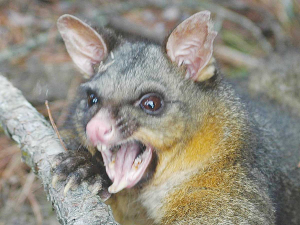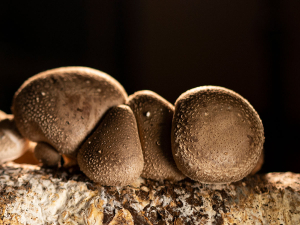It’s been five months since a possum was last detected across almost 1,000 hectares of Kaitake farmland in Taranaki.
That’s an exciting sign that work to remove predators is having an impact, says Towards Predator-Free Taranaki programme lead Sam Haultain.
Towards Predator-Free Taranaki, in conjunction with Taranaki Mounga, launched the Restore Kaitake project in 2018. Its goal is the complete eradication of possums from a 4,500 hectare area including the 2,300 hectares of the Kaitake Range, 2,000 hectares of Kaitake farmland and Oākura town.
Haultain says it’s been five months since a possum was caught or detected in the 990 hectare area from State Highway 45 to the coast, between Timaru Stream and the Oākura township.
There is a camera placed roughly every 30 hectares, while highly-trained detection dogs go out with their handlers regularly. None have detected any sign of a possum, she says.
“That’s exciting. Of course there’s always the chance one or two are laying low and avoiding detection, possums are tricky like that!
“But it’s a hugely positive sign that all the hard work put in over the last few years is paying off. And it brings us more confidence that eradication is possible – albeit a huge task.”
Haultain thanked the Oākura-Kaitake community, especially those who have reported possum sightings, are trapping predators on their own properties and everyone who volunteers on trapping and conservation projects in the region.
The task now is to keep the farmland area possum-free while expanding the possum-free zone outwards. Ongoing efforts will focus on the farmland between the state highway and the Kaitake Range and, in partnership with Taranaki Mounga, the Kaitake Range itself.
Haultain says the most helpful thing the community can do is report any possum sightings.
“Your challenge is to prove us wrong. If you see, hear or suspect a possum anywhere in Oākura-Kaitake we want to know. Please report it so we can head straight out and investigate most likely using the dogs.”
“Every possum and every introduced predator that is removed makes a difference to our native biodiversity.”










